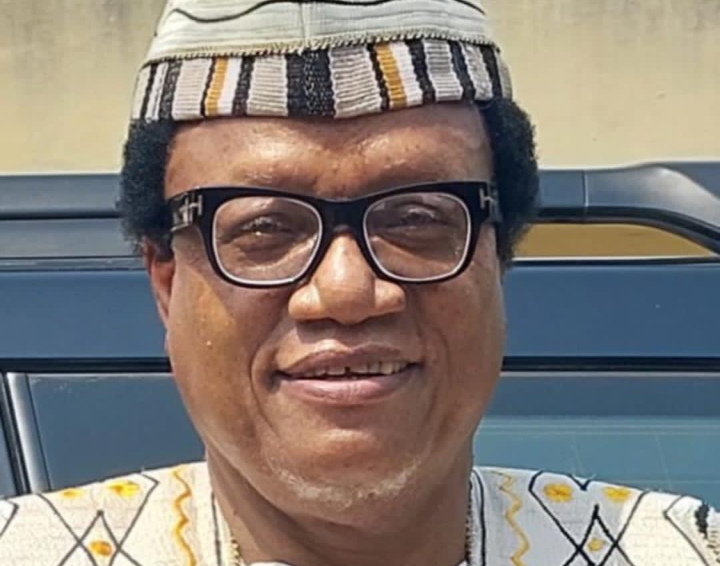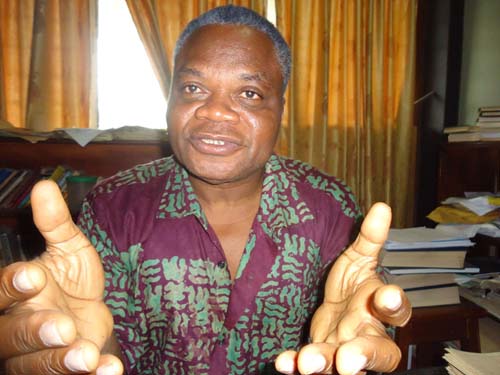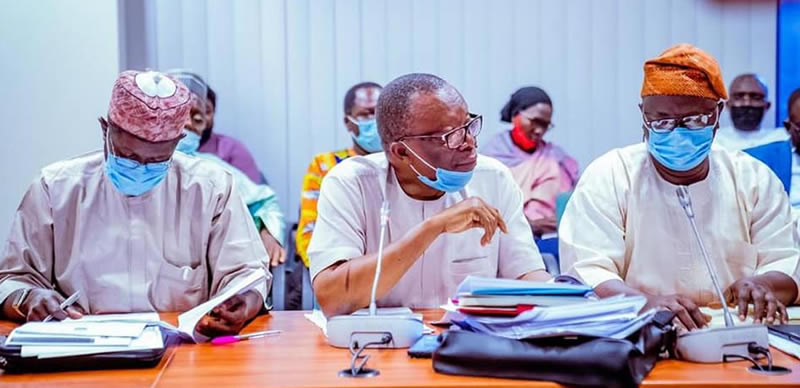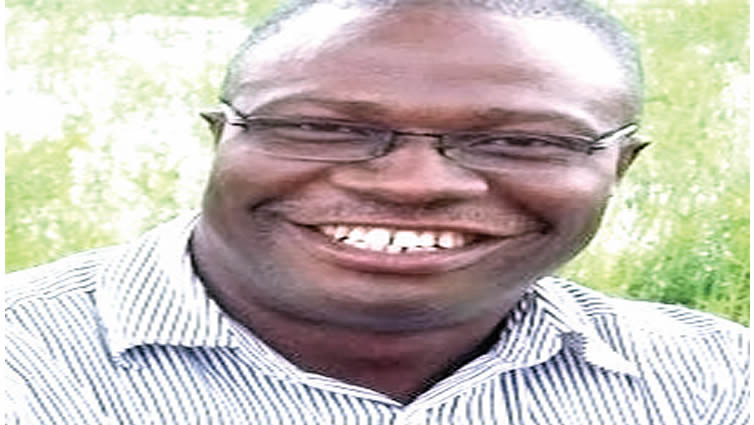Prof. Temi: It is preposterous, ridiculous, and unbecoming of the Academic Staff Union of Universities to poke its combative nose into matters that do, should not concern it. What is ASUU’s business with students loans which the federal government has signed into law?
First Daughter: Haba! Tell them, tell them for me Professor!
Prof Temi: Yes, I’ve told them, I’ve told the hierarchy. I have told them to return home to their original obligations to ASUU members. At the branch level, the union leaders do not tolerate any dissenting view. I am now speaking to their leaders at the national level – return home to cater to the welfare of ASUU members.
Prof. Friday: Why? What is your definition of welfare? Is welfare not dependent on internal, local, regional and international factors? Shouldn’t ASUU seek their welfare in a comprehensive manner, including that of their immediate communities? Sir, I don’t get what you are saying! But for ASUU the university system would have collapsed decades ago!
Temi: Has it not collapsed already?
Prof. Friday: It could have been worse! ASUU made it possible for more funding to be available to the universities. Do you remember what the life of the average academic was like before the Jega-ASUU led strike?
Temi: It is this penchant for poking their nose into the affairs of ‘their immediate communities’ that has stagnated our salaries since 2009. The same people we claim to fight for vilify ASUU for going on strike ‘anyhow! We are tired of making mumu sacrifices all in the name of others. Polytechnic lecturers earn more than university professors. Welfare is welfare – emoluments, take-home pay that can take us home, enough funds to do research, to attend international conferences. Period!
Friday: An ASUU that does not bother about the welfare of the citizens in its environment has no reason to exist!
Temi: An ASUU that second-places the welfare of its members has no reason to exist!
Friday: We are dealing with insensitive governments that don’t care about the people, about education. ASUU is the last vocal body in the country. Even the human rights organizations in Nigeria have all gone to sleep since APC came to power.
First Daughter: Excuse me Professor! Is ASUU a political party? Why don’t they join Peter Obi’s Labour Party or any other party to fight for the people? If their agenda is to fight government because of the general conditions in the country, then we shall proscribe the union. Haba!
Friday: Go ahead and do so! We dare you.
First Daughter: Try us. Go on strike again and see what will happen to your gidigidi union. Every time its strike strike strike! ASUU needs to put on its thinking cap and adopt new methods!
Friday: it is the government of the day that has been irresponsible, corrupt, inept, greedy, inefficient, nepotic, insensitive, and callous.
Prof. Lanre: Calm down everyone; let us calm down! It is true that ASUU has defended the university system for decades. But the time has come to focus on the direct welfare and personal emoluments of the persons who produce the manpower in the country. I am a professor. After taxes, all I take home every month is two hundred and sixty thousand naira. 260,000 naira only! How long can we continue like this. No professor in a federal university takes home five hundred thousand naira monthly. Shame! Shame! Shame!
Dr Jegede: One wonders why ASUU should leave some very urgent issues like our withheld salaries and a call for salary review for some amorphous national issues. It is true that the Union needs to comment on such national issues but it should not be done to the neglect of members’ personal welfare. Sometimes I don’t know where we are in the union!
Dr. O’Dami: I am a PhD lecturer, a senior lecturer in a federal university. My take home every month is under two hundred and fifty thousand naira!
First Daughter: That must be a lie. No PhD holder teaching in a university should take home anything less than five hundred thousand naira in this economy!
Dr. O’Dami: You see! You do not have the correct information. Tell your father that the bottom line is that university academics in Nigeria deserve a better pay structure. Period!
Friday: That information is correct. The pay structure is bad. But I have been in the university system for over thirty-five years. I was once a Vice Chancellor. I have a broader perspective on issues. The quality of life of ASUU members will only be better when the quality of living of ALL Nigerians improves. We cannot extricate ASUU from the sufferings of the larger society and pretend that we are improving ASUU’s welfare. That cannot be the case!
O’Dami: ASUU as a union should concentrate on fighting for the welfare of her members. Let the others fight for themselves. ASUU should desist from fighting for people who have no understanding of ASUU’s agitations. We dint vote in our national officers to fight for the poor. It is a union of academics. Not a trade union. What is NLC doing? NANS has now denounced ASUU as a busybody on the students’ loan matter.
Temi: There should be a paradigm shift. If ASUU doesn’t refocus, most of us will drift into CONUA. The younger academics have no patience with the old tactics and such egalitarian arguments about stabilizations funds. They complain about TETFUND which was suggested by ASUU and how that body has been hijacked by evil servants and entrenched political interests. Let NANS fight for students as they used to do in the 1970s. Let NLC fight for workers and the masses. Let NURTW fight for road transport workers. Let the market unions fight for market traders. Is ASUU fighting for SSANU, for NASU? Do they go on joint strikes!
Friday: You are being selfish! Just thinking about yourself first.
Dr. Abam: ASUU cares too much about everything in its environment and stifles the voices of student unions. ASUU should cry to the government differently on is own issues; and students unions should cry to the government about the learning environment. Most student unions in the universities are dead, killed by ASUU members who become Vice Chancellors and administrators!
Dr. Ejor: Sir, ASUU cannot continue this way. We cannot continue to make sacrifices on an empty stomach. It is those who ae alive that make sacrifices. We must protect our welfare interest first before we talk about others. If the national officers were not listening, they should listen now! God bless you Sirs!
First Daughter: Some of the things you are saying are strange to me. Very strange!
Temi: You are just a daughter to the president or the governor. How much do you know about university problems?
First Daughter: You will be surprised. I can press buttons that you will never access to!
Dr. Abam: Isn’t that a problem?
Prof. Lanre: Why, how is it a problem? A man sees a dangerous snake and a woman kills it. The important thing is that the snake is dead!
Temi: What we have said is that we appreciate all the struggle embarked on by ASUU. But the time has come to concentrate on the salary and welfare package of members. Since 2009, our salary package has not changed. What kind of idealism allows a union to ignore the personal welfare of its members?
First Daughter: ASUU, mind your business!








